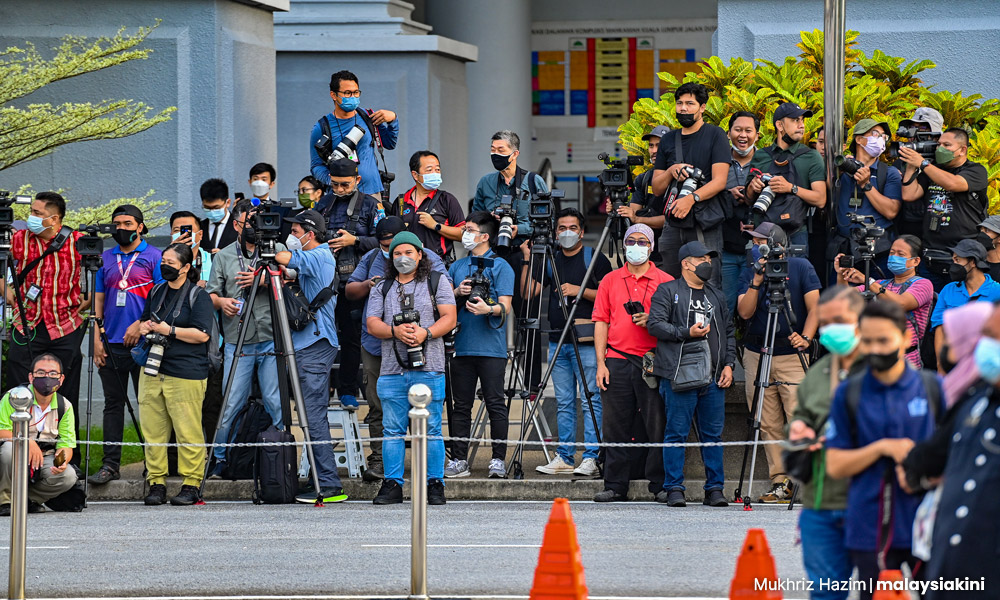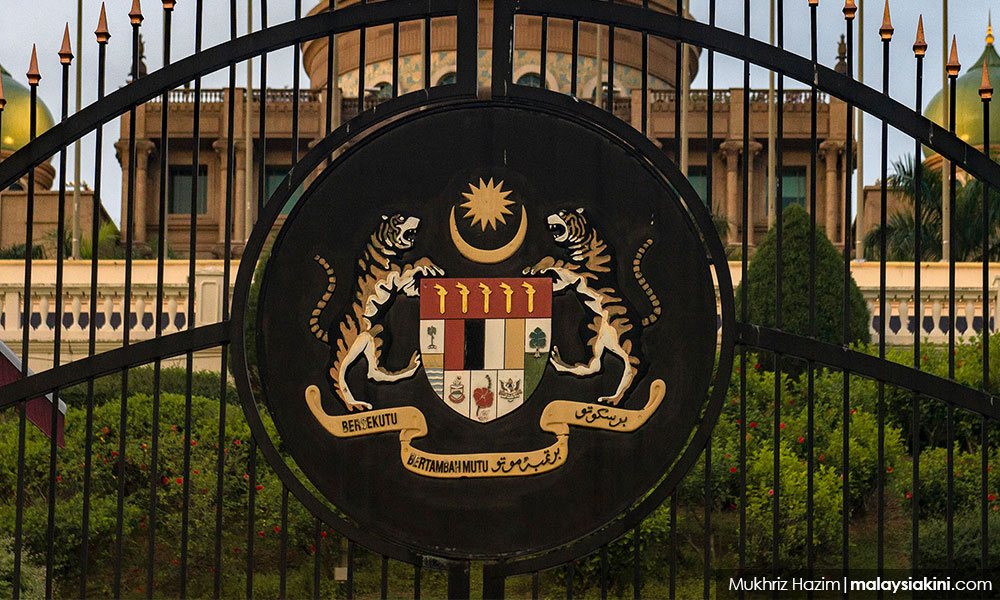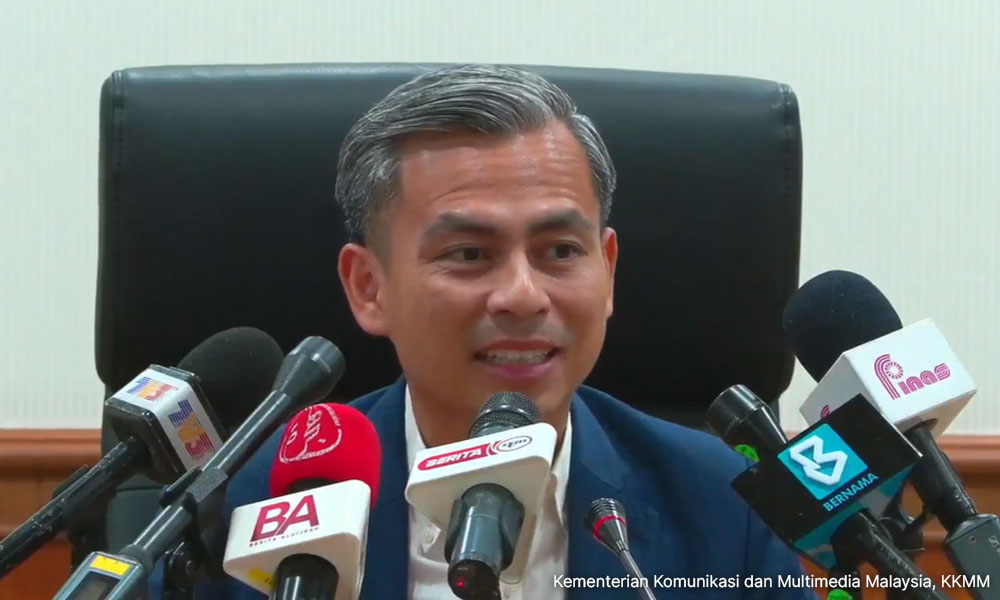When a politician or a minister puts his or her foot in the mouth and later claims he or she was misquoted or claims words were taken of context, the reader concludes that the reporter or journalist who wrote the original report had erred or did not understand what was said.
His or her integrity and credibility then come under a cloud and the politician, because of his or her status and power, becomes the “victim” of so-called misreporting. Never mind the notations which had been meticulously recorded in the reporter’s notebook or the recording on a device, for he or she becomes the villain.
When people in power dictate that what they had uttered had been misinterpreted, the masses swallow them hook, line and sinker, leaving the writer wondering where he or she went wrong.
Who protects journalists and their profession?
(Former attorney-general Mohd Apandi Ali suggested that, in such instances, the journalists should sue the politicians for putting them in a bad light.)
Therefore, when the buzzwords “press freedom” and “media council” were uttered by the then Information Ministry and (now the Communications and Digital Ministry), one has to wonder if measures are in place for the protection of honest and good journalism.

Generally, media councils are responsible for promoting high standards of media practice, community access to information of public interest and freedom of expression through the media.
It should be the body with the responsibility for responding to complaints about published material, other than advertisements in newspapers, magazines and digital sites.
It must be reiterated that having a media council will not guarantee media freedom. Among others, it remains an avenue for those aggrieved by news reports to give their side of the story and correct any misconceptions painted by such reports. The council could order a retraction or an apology, or both.
The council will not cure all the ills facing the media industry. It must also be emphasised that the law will have to take its course if and when there are breaches of any statute.
Who does the council serve?
Last week, the newly-minted Communications and Digital Minister Fahmi Fadzil and his deputy, Teo Nie Ching, repeated the mantra of having a media council and ensuring freedom of the press.
Since 1972, when the idea was first mooted, successive governments have been talking about a media council without any results for reasons known only to themselves.
Under the previous Pakatan Harapan government, a 17-member pro-tem committee was set up in January 2020 and followed by a consultation session between stakeholders and the then communications and multimedia minister Gobind Singh Deo.
A month later, the Harapan administration fell and the back-door government of Muhyiddin Yassin put it on the back burner and no one mentioned those phrases until last week.
But the most important question is: What and whose purpose does the council serve? A look into the past suggests nothing could have been done because the government, its agencies and its staff would have been the biggest culprits in not complying with the basic tenets and ethics of journalism.

These days, in the name of a unity government, everything seems hunky dory. The past seems to have been forgiven and forgotten, and the insidious conduct of a few seems to have been erased from their memory.
Recalling the bitter episodes of the past may be an exercise in futility - but they could provide some guidelines for the future.
If there had been a media council then, what would have been the reaction when a minister (Salleh Said Keruak) “lectured” journalists on how to go about their jobs and even (erroneously) insisted that the heading must come from the first paragraph?
How would the same council have dealt with the threat by then home minister and now deputy prime minister Ahmad Zahid Hamidi to close down newspapers?
So, the assurance by Fahmi that freedom of the media is a priority to ensure there is an effective check and balance of the administration, should be met with tepidity.
What would the council do, if both these or similar episodes are repeated? What protection will be afforded to journalists and newspapers if ministers resort to such wayward measures to get news presented or slanted in a way they want to?
Will the council prevent journalists’ arbitrary arrest and detention, as in the past? Above all, will there be uniformity and consistency in the application and enforcement of the laws?
Consistency is key
Fahmi would be doing the nation a favour by talking to the home minister to ensure consistency in the application and enforcement of the laws by the police.

Experience suggests selective prosecution. In some cases, people were arrested and remand orders were sought but in other cases, there’s hardly been action.
Just last week, police asked PAS president Abdul Hadi Awang to present himself at the Sentul police headquarters to be interviewed over his statements, but there have been other instances where lesser mortals were arrested and remand orders were sought.
Many years ago, four police officers in plain clothes jumped over the gate of ex-journalist Sidek Kamiso’s house, arrested him, and seized his laptop and mobile phone. He was then handcuffed and taken to Johor Bahru and produced in court, where the magistrate refused an application from the police to remand him for four days. No charges were proffered.
Two months ago, The Edge’s editor emeritus Ahmad Azam Mohd Aris was charged with two counts of criminal defamation related to two news reports about the manipulation of penny stocks in 2020 and 2021.
The charges were subsequently withdrawn, but the important question is: why were such charges allowed in the first place? While there seems to be expediency in prosecuting journalists doing their duties, many others whose remarks would have led to prosecution seem to have got away scot-free.
Now, with race and religion rearing their ugly heads at every turn, and with party organs and cybertroopers running wild, how are they going to be kept in check without stifling freedom of speech?
The biggest issue seems to be the reluctance on the part of the police to act on offenders, without giving any reasons, while citizens are relegated to using civil remedies to compel the authorities to act.
It may be savvy to have a media council but unless various arms of the government work in tandem and ensure fairness in the application of the provisions of existing laws, it will remain just a tool for the government to thump its chest and scream: “Yeah, we delivered as promised.” - Mkini
R NADESWARAN is a veteran journalist who writes on bread-and-butter issues. Comments: citizen.nades22@gmail.com
The views expressed here are those of the author/contributor and do not necessarily represent the views of MMKtT.




No comments:
Post a Comment
Note: Only a member of this blog may post a comment.